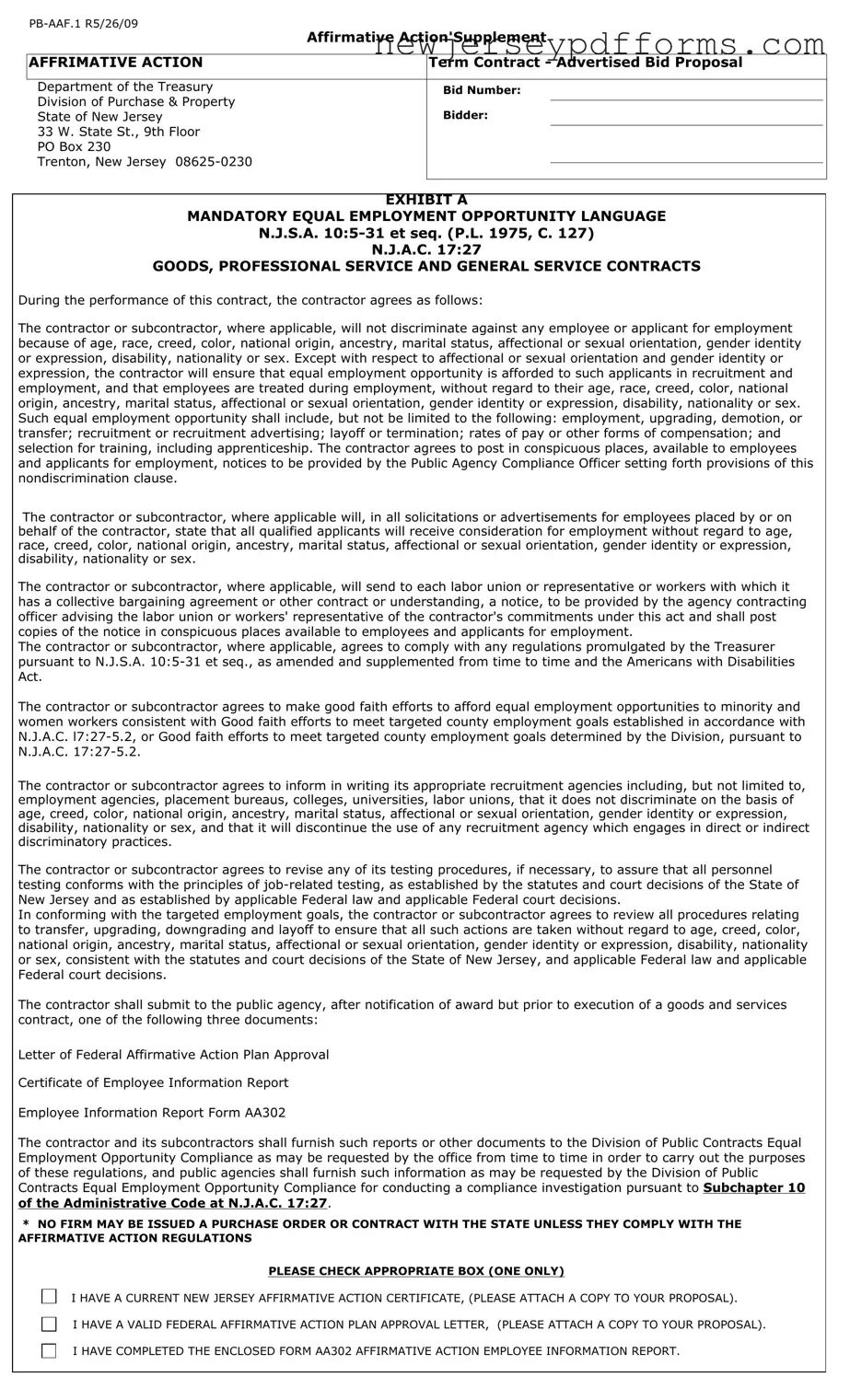What is the NJ Report Form and why is it important?
The NJ Report Form, specifically the Employee Information Report (Form AA302), is a crucial document for contractors and subcontractors doing business with the State of New Jersey. It serves to ensure compliance with the state's affirmative action regulations, which prohibit discrimination in employment based on various factors, including race, gender, and disability. Submitting this form is a mandatory step for obtaining contracts, as it demonstrates a commitment to equal employment opportunities.
Who needs to complete the NJ Report Form?
Any contractor or subcontractor seeking to engage in a contract with the State of New Jersey must complete the NJ Report Form. This requirement applies to businesses of all sizes and types, including those involved in goods, professional services, and general services. Compliance with the affirmative action regulations is essential for contract eligibility.
What information is required on the NJ Report Form?
The NJ Report Form requires detailed information about the company's employment practices. This includes the total number of employees, their racial and ethnic breakdown, and the type of business. Additionally, the form asks for the Federal Identification Number or Social Security Number, the name of the public agency awarding the contract, and the physical location of the business. Accurate and complete information is necessary to avoid delays in processing.
What happens if the NJ Report Form is not completed correctly?
If the NJ Report Form is not completed correctly, it may lead to delays in the issuance of the required affirmative action certificate. Incomplete forms or failure to submit the necessary $150 non-refundable fee can result in the rejection of the application. It is vital to follow the instructions carefully and ensure all sections are filled out accurately.
How does a business demonstrate compliance with affirmative action regulations?
A business demonstrates compliance by completing the NJ Report Form and submitting it along with the required documentation. This includes providing evidence of a current New Jersey Affirmative Action Certificate, a valid Federal Affirmative Action Plan Approval Letter, or the completed Employee Information Report Form AA302. Ongoing adherence to non-discrimination policies during recruitment and employment practices is also essential.
What are the consequences of non-compliance with the NJ Report Form requirements?
Non-compliance with the NJ Report Form requirements can result in significant consequences, including the inability to obtain contracts with the State of New Jersey. Firms that fail to meet affirmative action regulations may be disqualified from bidding on future contracts. Additionally, they may face legal repercussions and damage to their reputation in the business community.
Where can businesses submit the NJ Report Form?
Businesses should submit the completed NJ Report Form to the New Jersey Department of the Treasury, Division of Public Contracts Equal Employment Opportunity Compliance. The form, along with the necessary fee, should be mailed to P.O. Box 206, Trenton, New Jersey 08625-0206. It is advisable to retain a copy for your records and ensure timely submission to avoid any processing delays.

